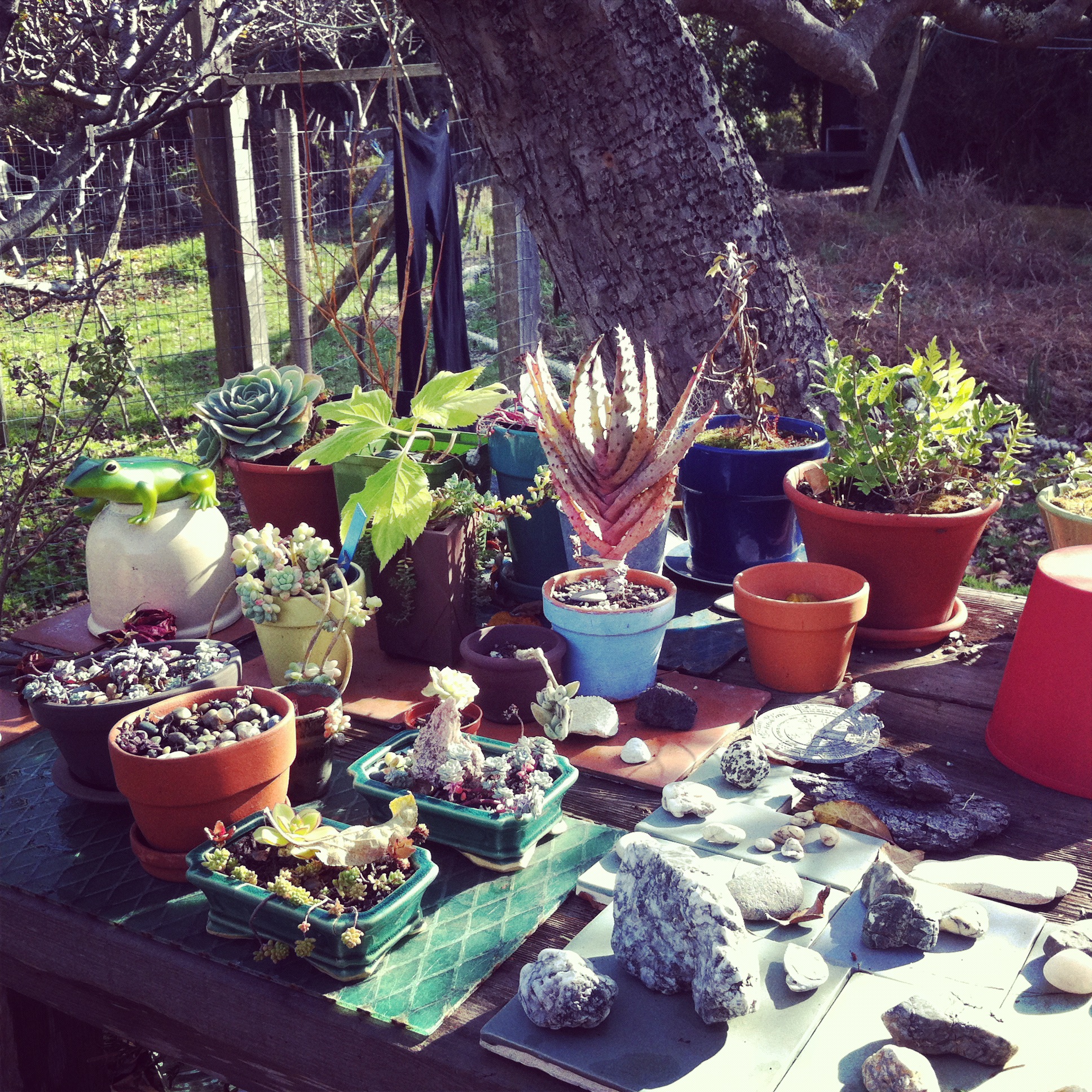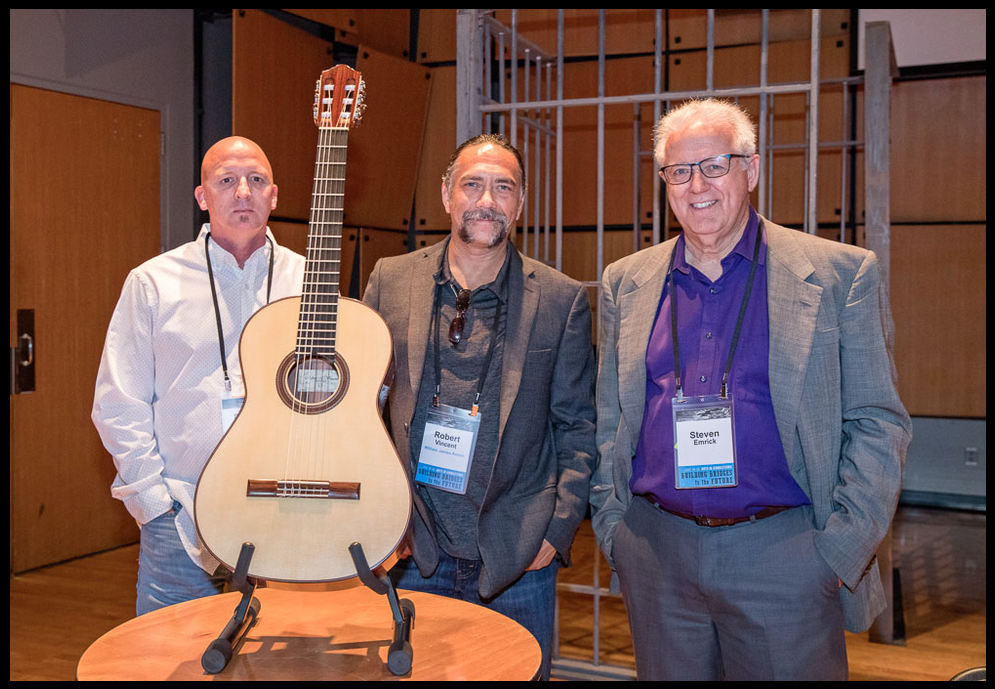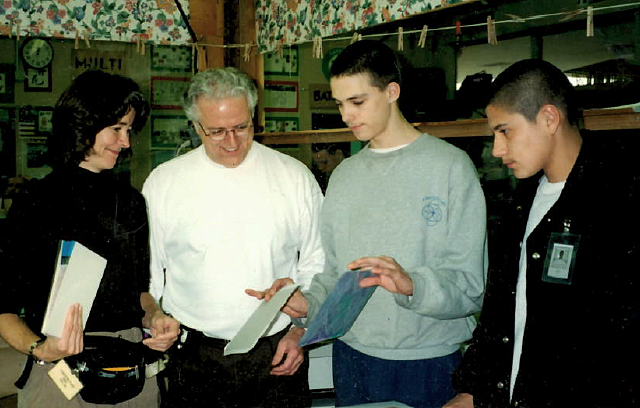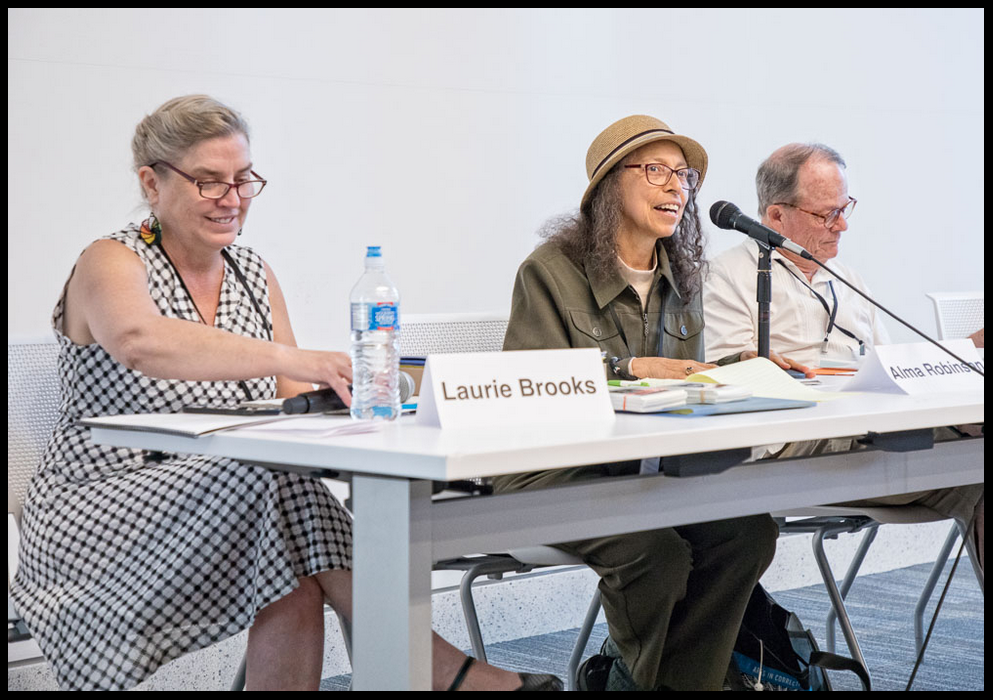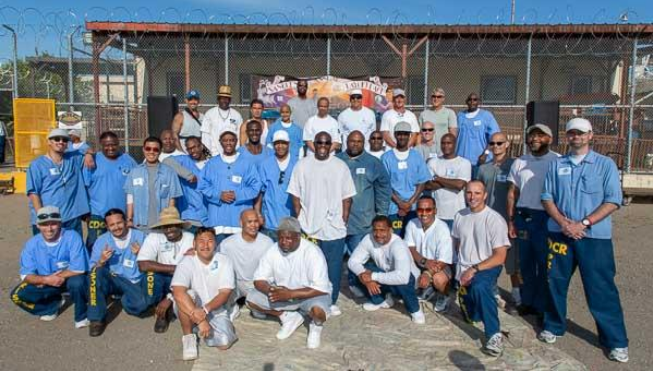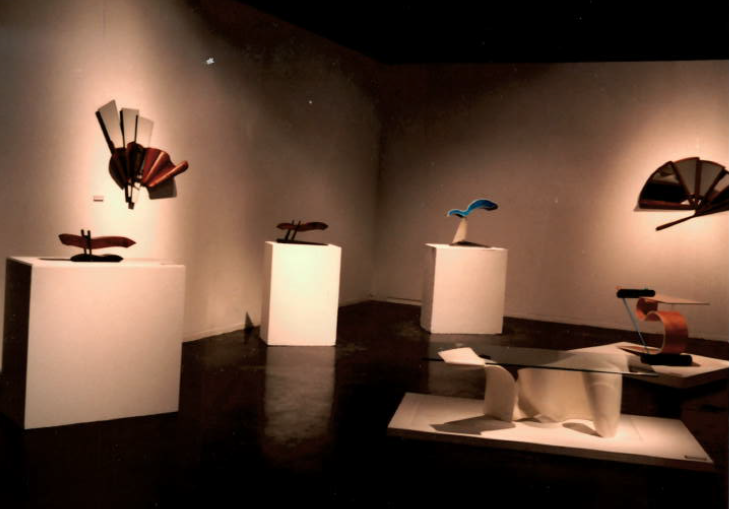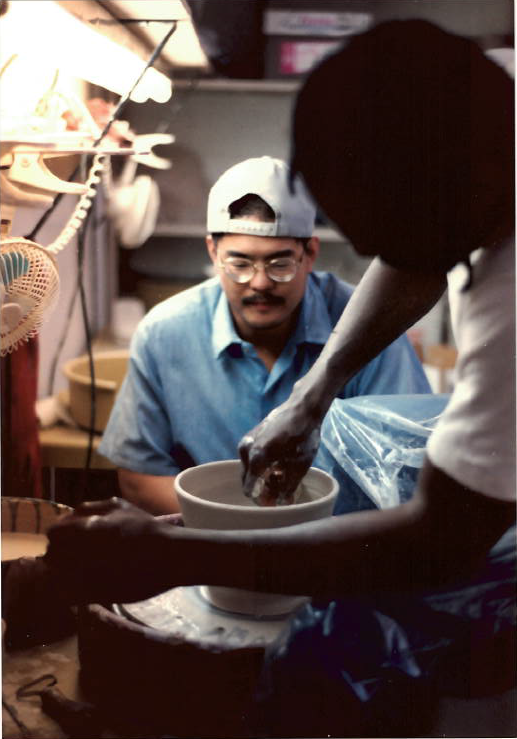Nani has a gift for entering others’ cultures in a respectful and sensitive way. That gift, combined with her strong curiosity and sense of adventure, has led to a unique trajectory from her childhood in Indonesia to her current job as a project manager at LinkedIn. In Part 6 Nani explains how poetry led her to anthropology.
Nani: Through Kyger’s influence I started reading Snyder, who’s a big advocate for anthropology. His work taught me the importance of knowing where people came from, how they live, and why different groups of people live in such different ways. It felt like foundational knowledge to me. That summer at Naropa I also took a class with Joanne’s friend Peter Warshall. His class also had an anthropological perspective. He took us to a sewage treatment plant to understand how we use water and deal with our waste. He wanted us to think about how our society has evolved to the point it’s at now.
Sarah: Were those experiences what gave you the idea of formally studying anthropology?
Nani: Yes. After a year and a half working full-time at the Learning Assistance Center, I spent a semester at San Diego State, taking prerequisites with the intention of applying to their master’s program in anthropology. But I quickly realized San Diego was not San Francisco. In retrospect I realized I went to San Diego to get away from a relationship that I was trying to end. After six months I returned to San Francisco and started my master’s at SF State.
Grad school was intense. For my thesis work I was drawn to one of the most controversial subjects in anthropology (at least at the time): the repatriation of Native American human remains and cultural artifacts. That exposed me to the ugly side of academic life. I was so surprised that individuals with PhDs could be so wedded to their own view that they would get downright hostile toward each other. The fight was primarily between archaeologists and physical anthropologists on the one side, and cultural anthropologists on the other. Archaeologists and physical anthropologists study the past by examining human remains and cultural artifacts, while cultural anthropologists study the present by working closely with present-living peoples, such as Native Americans. Because of their beliefs, many (though not all) Native Americans oppose the study of their ancestors’ human remains and cultural artifacts. One of the primary issues in the battle was that the two groups adopted polarized stances even though actually, even within each group, there was a range of perspectives and opinions.
Sarah: How did you cope with the situation?
Nani: I tried to be diplomatic. Even now I still see both perspectives—although I lean toward cultural anthropology, because if you look at the history of physical anthropology, it’s pretty ugly. The physical anthropologists at U.C. Berkeley, including the renowned Alfred Kroeber, took some deeply problematic stances, from saying that the brains of Anglo Saxons were more powerful than those of other ethnicities, to removing Native American artifacts without permission. They excavated something like 2,000 remains of individuals—that’s still in contention to this day.
I learned so much about the history of various Native American cultures. I hadn’t even known that Native Americans were the original inhabitants of North America. I’m embarrassed to say that, but it’s the truth. That narrative was never presented in Indonesia, given the suppression of critical thinking I described earlier. The Indonesian government didn’t want indigenous Indonesians to be aware of struggles by indigenous populations in other parts of the world.
Ultimately three factors led me to decide to not pursue a doctorate degree. First of all, I didn’t like the politics of the academic world—though I later learned that every field has politics—I just needed to learn the skills to cope with it. Also, as someone who is not Native American, I felt a little out of place speaking about Native American rights and traditions. And finally, I saw the pressure to be a good academic, strive for tenure—for example by writing papers for publication in peer-reviewed journals.
Next: You Just Need to Find a Good Husband
-
August 2021
- Aug 31, 2021 The Heart Is the Major Target—Part 9: The Teacher Role Isn't My Essence Aug 31, 2021
-
June 2021
- Jun 13, 2021 The Heart Is the Major Target—Part 8: Machines Spilling Out Teachers Jun 13, 2021
-
April 2021
- Apr 14, 2021 The Heart Is the Major Target—Part 7: A Waterfall of Inspiration Apr 14, 2021
-
February 2021
- Feb 14, 2021 The Heart Is the Major Target—Part 6: Grab the Right Computer File Feb 14, 2021
-
December 2020
- Dec 26, 2020 The Heart Is the Major Target—Part 5: Yoga Is My Second Child Dec 26, 2020
-
November 2020
- Nov 5, 2020 The Heart Is the Major Target—Part 4: Wow, This Is Me Nov 5, 2020
-
October 2020
- Oct 4, 2020 The Heart Is the Major Target—Part 3: In Exile in My Own Country Oct 4, 2020
-
August 2020
- Aug 23, 2020 The Heart Is the Major Target—Part 2: Openness to the Unseen Aug 23, 2020
- Aug 2, 2020 The Heart Is the Major Target—Part 1: Let's Move Around; We'll Feel Better Aug 2, 2020
-
July 2020
- Jul 25, 2020 Educator Wellness Series Conclusion: Moving Forward with Wellness Jul 25, 2020
- Jul 6, 2020 Educator Wellness Practice #10: Inhabiting the Dignified Stance of "Adequate" Jul 6, 2020
-
June 2020
- Jun 17, 2020 Educator Wellness Practice #9: Jun 17, 2020
- Jun 3, 2020 Educator Wellness Practice #8: Reducing Stress Through Body Scanning Jun 3, 2020
-
May 2020
- May 21, 2020 Facebook Live Event: A Conversation About the Impact of Saying Goodbye to Students May 21, 2020
- May 13, 2020 Educator Wellness Practice #7: Setting Intention and Letting Go of Results May 13, 2020
- May 6, 2020 Educator Wellness Practice #6: Practicing Goodwill as Self-Care May 6, 2020
-
April 2020
- Apr 29, 2020 Educator Wellness Practice #5: Dealing with Constant Change Apr 29, 2020
- Apr 22, 2020 Educator Wellness Practice #4: Listening to Silence Apr 22, 2020
- Apr 21, 2020 Facebook Live Event: A Conversation About the Importance of Self-Care Apr 21, 2020
- Apr 15, 2020 Educator Wellness Practice #3: Apr 15, 2020
- Apr 8, 2020 Educator Wellness Practice #2: Engaging Wisely with News and Media Apr 8, 2020
- Apr 1, 2020 Educator Wellness Practice #1: Breathe ... Keep Breathing Apr 1, 2020
-
March 2020
- Mar 25, 2020 Educator Wellness Series for Collaborative Classroom Mar 25, 2020
-
May 2019
- May 19, 2019 Managing to Build Bridges - Part 8: Do We Want to Be Right in a Dictionary Sense? May 19, 2019
-
April 2019
- Apr 27, 2019 Managing to Build Bridges - Part 7: You Just Need to Find a Good Husband Apr 27, 2019
- Apr 6, 2019 Managing to Build Bridges - Part 6: Human Remains and Cultural Artifacts Apr 6, 2019
-
March 2019
- Mar 17, 2019 Managing to Build Bridges - Part 5: Poetry Has No Rules Mar 17, 2019
- Mar 3, 2019 Managing to Build Bridges - Part 4: Dessert Goes to a Different Stomach Mar 3, 2019
-
January 2019
- Jan 13, 2019 Managing to Build Bridges - Part 3: I Felt Pretty Stupid Jan 13, 2019
-
December 2018
- Dec 9, 2018 Managing to Build Bridges - Part 2: Such a Bad Kid Dec 9, 2018
-
November 2018
- Nov 23, 2018 Managing to Build Bridges - Part 1: The Pressure to Be a Certain Type of Girl Nov 23, 2018
-
October 2018
- Oct 23, 2018 Leadership Without Ego - Part 6: Mayberry with an Edge Oct 23, 2018
- Oct 1, 2018 Leadership Without Ego - Part 5: Everyone Everywhere Deserves to Make Art Oct 1, 2018
-
September 2018
- Sep 10, 2018 Leadership Without Ego - Part 4: I'm About Ready to Swear Sep 10, 2018
-
August 2018
- Aug 19, 2018 Leadership Without Ego - Part 3: The Dalai Lama Breaks All the Rules Aug 19, 2018
-
July 2018
- Jul 29, 2018 Leadership Without Ego - Part 2: The Kids Melted Under That Praise Jul 29, 2018
- Jul 10, 2018 Leadership Without Ego - Part 1: The Workshop Was Neutral Territory Jul 10, 2018
-
May 2018
- May 26, 2018 The Alchemy of Service - Part 5: Watch Out, Someone's Behind You May 26, 2018
- May 6, 2018 The Alchemy of Service - Part 4: Fireworks and Tears May 6, 2018
- May 5, 2018 The Alchemy of Service - Part 3: Joann Wong! You Are Chinese! May 5, 2018
-
April 2018
- Apr 6, 2018 The Alchemy of Service - Part 2: Mom, It's Only a Nickel Apr 6, 2018
-
March 2018
- Mar 19, 2018 The Alchemy of Service - Part 1: Mouse Soup Mar 19, 2018
-
February 2018
- Feb 18, 2018 Back to the Garden - Part 4: Mountain Lion Footprints on the Deck Feb 18, 2018
- Feb 3, 2018 Back to the Garden - Part 3: "You're a Good Egg—Happy Easter" Feb 3, 2018
-
January 2018
- Jan 15, 2018 Back to the Garden - Part 2: "A Pretty Big Failure" Jan 15, 2018
- Jan 1, 2018 Back to the Garden - Part 1: "Aesthetic Shock" Jan 1, 2018
-
August 2017
- Aug 15, 2017 Goodbye Self-esteem, Hello Self-compassion – Part 3: Real Love Aug 15, 2017
-
July 2017
- Jul 31, 2017 Goodbye Self-esteem, Hello Self-compassion – Part 2: Mirror, Mirror Jul 31, 2017
- Jul 17, 2017 Goodbye Self-esteem, Hello Self-compassion – Part 1: Bashing Vasco Jul 17, 2017
-
May 2017
- May 28, 2017 This Thing I Found: Teens Teach Us How to See Freshly May 28, 2017
-
March 2017
- Mar 20, 2017 Dream On - Part 6: Dream Analysis Example Mar 20, 2017
- Mar 7, 2017 Dream On - Part 5: A Dream Analysis Technique (cont.) Mar 7, 2017
-
February 2017
- Feb 20, 2017 Dream On - Part 4: A Dream Analysis Technique Feb 20, 2017
-
January 2017
- Jan 22, 2017 Dream On - Part 3: Recording Dreams Jan 22, 2017
- Jan 15, 2017 Dream On - Part 2: Dream Recall Jan 15, 2017
-
December 2016
- Dec 30, 2016 Dream On – Part 1 Dec 30, 2016
- Dec 12, 2016 Enjoying the Ride of Serendipity Dec 12, 2016
- Dec 6, 2016 Agnes Martin: A Singular Career Dec 6, 2016






